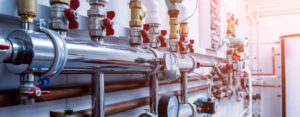Choosing between gas and electric for your home isn’t just about flipping a switch—it’s about finding the option that’s best suited to your lifestyle, budget, and even the layout of your house.
From cooking and heating to hot water systems, each has its own set of benefits and drawbacks. And if you’re thinking about making the switch, chatting with a qualified gasfitter can help make the decision a lot easier.
In this guide, we’ll dive into the pros and cons of gas and electric, and what to consider when making your choice.
1. Cost-effectiveness: What’s cheaper in the long run?
Gas:
When it comes to running costs, gas usually comes out ahead—especially for heating and hot water. Gas appliances tend to be more energy-efficient, which means lower bills over time. Natural gas also tends to be cheaper per unit compared to electricity, making it a cost-effective option if you’ve got a larger family or use a lot of hot water.
Electric:
On the flip side, electric appliances generally cost less upfront and are easier to install, especially if your home isn’t already connected to a gas line. While electricity can be more expensive per unit, newer models—like heat pump hot water systems and induction cooktops—are becoming a lot more energy-efficient.
What to consider:
- If your home’s already set up for gas, sticking with it could save you more in the long run.
- For smaller households or energy-efficient new builds, electric might be the better bet.
- Speaking to a licensed gasfitter can help you work out installation costs and potential savings.
2. Heating your home: Warmth that works
Gas:
Gas heaters are known for heating rooms quickly and maintaining warmth, making them ideal for larger spaces or open-plan living areas. Ducted gas heating systems can also warm your entire home without costing a fortune to run. Plus, they keep working even if there’s a power outage—a big win in the middle of winter.
Electric:
Electric heaters, including split systems and panel heaters, offer a lot of flexibility. You can heat just one room without wasting energy on spaces you’re not using. However, they can struggle to warm larger areas efficiently, and running them for extended periods can cause your electricity bill to spike.
Expert tip: If you’re considering gas heating, a professional gasfitter can help ensure your system is installed safely and complies with local regulations.
3. Cooking: The battle of the burners
Gas:
Ask any chef, and they’ll probably tell you gas is the way to go for cooking. Gas cooktops offer instant heat and precise temperature control, making them perfect for everything from stir-fries to slow simmers. They also work during power outages, which is handy if you live in an area prone to blackouts.
Electric:
While electric cooktops might lack the instant heat of gas, induction cooktops are a game changer. They’re fast, energy-efficient, and offer precise temperature control—plus, they’re a lot safer if you’ve got kids, as the surface doesn’t get hot. The downside? They can be a bit pricier upfront and require compatible cookware.
What to consider:
- If you’re keen on gas, check if your kitchen’s ventilation is up to scratch. A gasfitter can help with proper installation and venting to keep things safe.
- For electric, make sure your home’s wiring can handle the load, especially if you’re planning on upgrading multiple appliances.
4. Hot water systems: Gas vs electric
Gas:
Gas hot water systems, including instant and storage models, are known for their efficiency and lower running costs. Instant systems heat water only when you need it, which means no wasted energy keeping a tank hot. Gas storage systems, on the other hand, can recover faster than electric models, ensuring you’re not left shivering in the shower.
Electric:
Electric hot water systems tend to have higher running costs, but they’re easier to install and don’t require a gas connection. Heat pump systems are an efficient alternative, using about 60% less electricity than traditional electric storage units. However, they do have a higher upfront cost and work best in warmer climates.
What to consider:
- If you’ve got gas connected, a gas hot water system is probably the smarter choice.
- A licensed gasfitter can help you weigh up the installation costs and efficiency of different systems.
5. Environmental impact: Gas or electric?
Gas:
While natural gas burns cleaner than other fossil fuels, it’s still a non-renewable resource that emits carbon dioxide. However, it’s worth noting that gas appliances tend to be more efficient than older electric models, which can offset some of the environmental impact.
Electric:
Electricity’s environmental impact depends largely on where it’s coming from. If your power’s sourced from renewables—like solar or wind—then electric appliances can be a greener choice. For those with solar panels, going electric means you could potentially power your home for next to nothing.
Key takeaway:
- If sustainability is a priority, consider upgrading to energy-efficient electric appliances and investing in solar.
- If gas is the better fit, choosing high-efficiency gas appliances can help reduce your carbon footprint.
Making the right choice for your home
Choosing between gas and electric isn’t a one-size-fits-all decision—it really depends on your lifestyle, budget, and how your home’s set up. Gas is generally more cost-effective for heating and hot water, especially if your home’s already connected.
Electric, on the other hand, is becoming more efficient and can be a better choice for new builds or homes with solar power.
Getting advice from a qualified gasfitter can make a world of difference, especially when it comes to installation costs and safety. They can help you weigh up the options, figure out what’s best for your home, and ensure everything’s installed to code.
If you’re still on the fence about going gas or electric, why not chat with a licensed gasfitter?
Call Flowtec at 0488 097 697 or book a service online for friendly advice and expert guidance on making the right choice for your home.Got more questions about gas vs electric? We’re here to help—just reach out!



